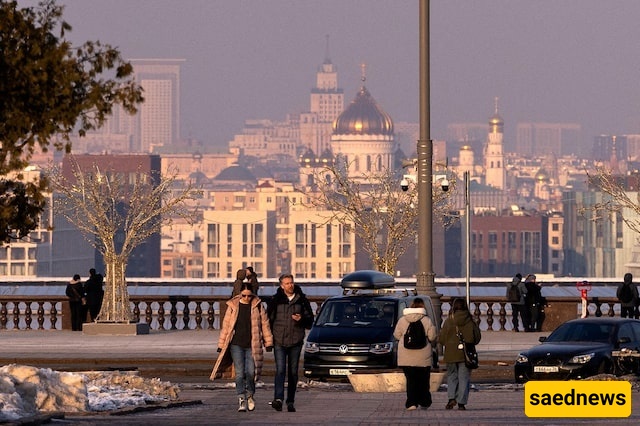SAEDNEWS: With the continuation of the Ukraine war and soaring military expenses, the Russian government has been forced to adopt austerity policies and design new tax packages.

According to SaedNews, citing Reuters, as Russia’s war costs continue to rise, it faces increasing pressure on its public budget, with clear signs of moving toward austerity policies and higher taxes. As the Ukraine war enters its third year, the Kremlin is compelled to allocate vast resources to finance the army, purchase weapons, and maintain the war machine, placing severe pressure on other economic sectors. In this context, Russian economic officials are preparing policies that could have deep impacts on the lives of ordinary citizens.
Military spending has reached unprecedented levels, inflating Russia’s budget and disrupting the traditional balance between defense and non-defense expenditures. While energy exports remain Moscow’s main source of foreign revenue, Western sanctions and restrictions on oil and gas sales have reduced the government’s ability to secure sustainable resources. This has pushed the Kremlin toward compensatory measures, including cuts in welfare spending, limiting infrastructure projects, and ultimately designing new tax packages.
Increasing taxes on businesses and the wealthy is one of the main options currently being discussed in Russian economic circles. While such measures could provide short-term financial resources for the government, they are likely to negatively affect domestic investment and private-sector incentives. Meanwhile, reducing social subsidies and limiting public service expenditures may increase public dissatisfaction, especially as citizens face a declining ruble, rising inflation, and economic hardship.
Politically, the Kremlin seeks to justify these policies as temporary and necessary measures to “preserve national security.” In reality, Russia’s economic structure has become increasingly dependent on the war and military industries, reducing flexibility in facing future economic crises. Even if oil revenues improve slightly in the short term, war-related expenses continue to consume a large portion of the budget and hinder investment in development sectors such as education, health, and technology.
Internationally, Russia’s move toward austerity and higher taxes reflects the gradual impact of Western sanctions and economic pressures. Initially, Moscow mitigated the initial shocks using currency reserves and alternative trade routes, but the prolonged war and heavy expenses have depleted financial reserves and limited the government’s economic maneuvering capacity.
Ultimately, Russia’s economic outlook in these conditions appears uncertain. If the war continues, financial pressures will only increase, forcing the government to adopt stricter measures such as higher taxes and tighter restrictions on public spending. This trend could reduce public trust, slow private-sector growth, and weaken the country’s long-term economic capacity. Nevertheless, the Kremlin’s primary priority remains maintaining military capability and demonstrating stability to domestic and international audiences, even if this comes at the cost of worsening citizens’ living conditions.

